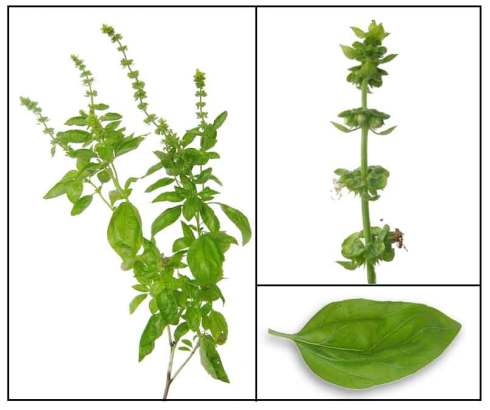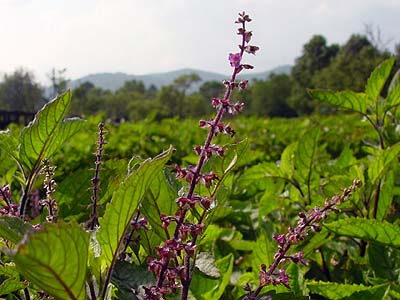You are currently browsing the category archive for the ‘Toothache’ category.
MANILA, Philippines — There have recently been reports about scientific findings confirming the efficacy of traditional herbal cures for simple, everyday aches and pains. In these days when we’re forced by bad weather to stay at home, the kitchen can save us a trip or two to the drugstore; we only need to know how, and keep in mind what Lord Riekin wrote in a book in 1999.
ALLSPICE — With its active ingredient eugenol, allspice provides relief from topical pain and makes an excellent mouthwash when steeped into a tea.
ANISE SEED — Seven tsp. of seed to one quart water, boiled down by half, and sweetened with honey creates a syrup that calms a cough. Anise tea improves memory, aids digestion, and makes an excellent wash for oily skin.
ASPARAGUS — Boil asparagus in water the broth for kidney problems. Dissolves uric acid deposits and promotes urination.
BASIL — Fresh leaves and seeds make tea for migraines and bed time restlessness. The tea is also used as douche for yeast infections, as well as gargle and mouthwash.
BAY/LAUREL LEAVES— Heat leaves in a little olive oil to make a bay oil salve for arthritis and aches.
CAYENNE PEPPER— Capsicum speeds metabolism. Capsicum cream and oils relieve arthritis and aches, not just by warming and stimulating blood flow, but also by blocking pain transmission by nerves. Prevents blood clots, heals ulcers. Cayenne dramatically drops blood sugar levels and should by avoided by hypoglycemics. Cayenne promotes excretion of cholesterol through the intestines.
CELERY — Has sedative effects through active ingredient thalide. Seed and stalk reduce hypertension. Celery seed tea helps the kidneys as a cleanser.
CILANTRO (WANSUY) — Leafy part of coriander plant. Food poisoning preventative.
CINNAMON— Mouthwash, good for upset stomach. Simmer sticks with cloves for 3 min, add 2 tsp lemon juice, 2 tsp honey, 2 tbsp whiskey – as cold medication. Boil 8-10 sticks in 4 cups water, simmer 5 min, steep 45 min, then douche or apply to athlete’s foot.
CLOVES (CLAVOS)— Use oil for pain relief for sore gums and toothache. Add clove oil to neutral oils for topical pain relief of arthritis. Small amounts of clove in a tea for nausea. 3 cloves in two cups of boiled water, steeped for 20 minutes, as an antiseptic and mouthwash.
CORIANDER— The tea can be held in the mouth to relieve the pain of a toothache. Can also be drank to relieve flatulence and indigestion.
DILL SEEDS— Bring one pint of white wine almost to a boil, remove from heat and add 4 tsp of dill seeds, let steep 30 minutes and strain. Drink 1 ½ cups a half hour before retiring to sleep well.
FENNEL — Chewing fennel seeds relieves bad breath. Fennel seed tea sweetens breastmilk. Fennel tea relieves colic in infants.
GARLIC — Ultimate antibiotic. Useful even for sexually transmitted diseases. Strongly recommended for hypoglycemia and diabetes. Destroys intestinal parasites. Reduces cholesterol. Repels insects, and reduces sting effects of insects and red ants.
GINGER— Anti-nausea tea and blood thinner. Boil 2/3 cup of freshly chopped root in 1 gallon water, wrapped in cheesecloth (or old nylon stocking) until the water is yellow. Then soak towel and lay on bruises and sprains while still hot, to ease them. Stimulates a delayed period. Warm ginger tea is good to break up congestion and fever.
LEMONGRASS – Simmer ½ cup of dried leaves in 2 pints of water for 10 minutes, and sip to bring down fevers.
MINT— Peppermint tea for migraines, nervousness, stomach disorders, heartburn, and abdominal cramps. Herpes sufferers can take 2 cups of tea a day to ease the symptoms when the virus is active.
ONION— Onion is an excellent dressing for burns. Crush sliced onions with a little bit of salt and apply to burns. Apply sliced onion to bee and wasp stings.
PARSLEY— Chew for halitosis. A few sprigs provide 2/3 the vitamin C of an orange, lots of vitamin A, and the important amino acid histidine, which is a tumor inhibitor. Parsley tea is good for kidney problems, painful urination, and kidney stones. One cup of parsley to 1 quart of water makes a strong tea.
BLACK PEPPER— Pain relief from toothache, brings down a fever.
TURMERIC— Anti-oxidant. Take ½ tsp in juice in the morning and evening to aid in removing fat around the liver.
VINEGAR— Naturally brewed apple cider vinegar: Take 1 tbsp per day of equal parts vinegar and honey in water to taste to cleanse the blood and reduce inflammation from arthritis.
For comments and suggestions, email to solvanzi2000@yahoo.com.
Source: http://mb.com.ph/articles/368918/natural-cures-from-the-kitchen

Chemical constituents and properties
• The dried leaves contain 0.21–1% essential oil, the major compounds of which are linalool and methyclaviol.
• Some of the other compounds are: caffeic acid, p-coumaric acid, p-cymene, limonene, 1,8-cineole, methyl cinnamate, myrcene, quercetin, rutin, tryptophan, safrole.
• Study yielded 14 different anthocyanins: 11 cyanidin-based pigments and 3 peonidin-based pigments.
• Carminative, stimulant, diaphoretic, expectorant, febrifuge, diuretic, demulcent, mucilaginous, cooling.
Parts utilized
Leaves, seeds.
Mature fresh leaves are harvested 2 to 3 months after planting. Leaves are picked leaving the branches on the plant to allow it to flower and produce seeds for the next season.
The leaves are air-dried until they crumble when crushed with the fingers. Store in amber colored bottles in a cool, dry place.
Uses
Culinary
The leafy and flowering tops are used as condiment; eaten sparingly in salads.
Folkloric
Cough: Expectorant properties – Take infusion or decoction of herb (9-15 gm of dried herb) or tops as tea.
Leaf juice helpful for expectoration of mucus.
Decoction of leaves also used for hiccups, vomiting and nausea.
Gas pains: Decoction of herb as tea helps to expel wind from bowels.
Snake bites: Crush fresh plant and poultice the bitten wound.
Gonorrhea, using a decoction of the roots and leaves of plants.
Decoction of leaves used as a wash for ulcers.
External contusions.
Used in baths for rheumatic pains.
Ringworm and insect bites: Apply juice of crushed leaves.
Skin ulcers: Decoction of herb as wash.
For delayed menstruation: take the juice of the leaves with water.
Seeds are used in treatment of several eye diseases.
Toothache: Wet small piece of cotton with juice of crushed leaves and insert into tooth cavity.
Postpartum: Decoction of seeds used to decrease postpartum pains; the seeds are mucilaginous.
Poultice of seeds used for buccal sores.
Decoction of seeds also used for constipation.
Acne: Infusion of 3 tsp of dried leaves in 1 cup of boiling water for 20-30 minutes. Apply externally or drink decoction of tea or infusion 3 times daily.
Others
• Oils repel insects (limonene, myrcene, camphor, thymol) and have larvicidal (eugenol and methylclaviol) activity against houseflies and mosquitoes.
Recent uses
Dizziness: crush enough fresh leaves with your fingers and sniff them.
Cough: As decoction boil eight tablespoons of fresh leaves in two glasses of water for 15 minutes or until the liquid is reduced to half. Divide the decoction into eight parts and take one part, three times a day.
Studies
• Aqueous extracts of Ocimum basilicum L. (sweet basil) decrease platelet aggregation induced by ADP and thrombin in vitro and rats arterio–venous shunt thrombosis in vivo: Results showed Ocimum basilicum to possess an inhibitory effect on platelet aggregation induced by ADP and thrombin resulting in an anti-thrombotic effect in vivo.
• Cardiac stimulant activity of Ocimum basilicum Linn. extracts: The study evaluated the cardiac effects of extracts derived from the aerial parts of Ocimum basilicum. Results showed the alcoholic extracts exhibited a cardiotonic effect and the aqueous extract produced a B-adrenergic effect.
• Antimicrobial Effects of Ocimum basilicum (Labiatae) Extract: Results suggest that O. basilicum extracts possess compounds with antimicrobial properties against C. albicans and some bacterial pathogens.
• Anti-dyspepsia: A Double-Blind Placebo-Controlled study showed Ocimum basilicum seems to relieve functional dyspepsia in female and young patients with dysmotility.
• Anthocyanins in Basil : Purple basils are an abundant source of acylated and glycosylated anthocyanins, a potential source of stable red pigments to the food industry.
• Antioxidant: In a study of plants in the Lamiaceae family, the leaves and stems of Ocimum basilicum displayed the highest antioxidant activity.
• Antiulcer: Study showed the seed extracts of OB to possess significant anti-ulcer activity against ethanol-induced ulceration in animal models.
• Wound-Healing Activity: Wounds treated with honey in combination with OB alcoholic leaf extract and solcoseryl-jelly showed accelerated wound healing compared to honey alone.
• Antiproliferative / Anticancer: A study on the antiproliferative activity of essential oil from 17 thai medicinal plants on human mouth epidermal carcioma (KB) and murine leukemia (P388) cell lines. In the KB cell line, Sweet Basil (Ocimum basilicum) oil showed the highest anti-proliferative activity in the P388 cell line. The results suggested the potential of Thai medicinal plants for cancer treatment.
Toxicity
Although known for its medicinal benefits, it contains some potentially dangerous compounds: safrole, rutin, caffeic acid, tryptophan and quercetin.(See: Medicinal Plants for Livestock / Cornell University)


